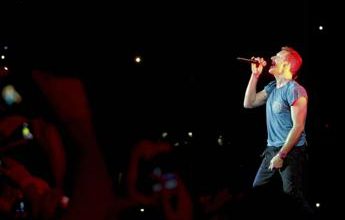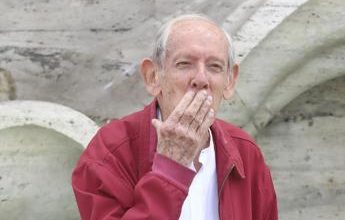The Baroque Alessandro Stradella Festival in Viterbo kicks off from 31st August

Opening at Palazzo Farnese di Caprarola, with a concert directed by Andrea De Carlo
Stradella (Bologna, 1643; Genoa, 1682) is one of the greatest Italian composers of his generation. However, the daring and adventurous existence of this ‘Caravaggio of music’ has given rise, since the nineteenth century, to novels and works in music that reproduce the stereotype of the ‘cursed genius’, to the detriment of his (hidden) leading role. of the seventeenth century music and composer capable of a writing rich in contrasts and amazing subtleties.
As recalled by Andrea De Carlo, artistic director of the Festival, in fact, Stradella “had a contrapuntal culture worthy of a Flemish composer and a rhythmic complexity close to that of a medieval composer”.
De Carlo, will direct the performance of the Mare Nostrum Ensemble, now a point of reference in the interpretation of the musician’s works. Performing with the musical group will be the soprano Silvia Frigato, Federico Fiorio and Margareta Slepakova, the countertenor Danilo Pastore and the alto Eleonora Filipponi, the tenor Matteo Straffi and the bass Masashi Tomosugi. The Festival is supported by the honorary presidency of Anna Fendi and carried out in collaboration with the Mic, the Lazio Region, the Lazio Regional Museums Directorate, the Municipalities involved and the Carivit Foundation of Viterbo.
Also this year a special section of the event will be dedicated to the territory, with the title Musicians of Tuscia: past and present: two important initiatives. The first is Maxentius 2035, an ambitious project for the complete execution of the works of the composer from Ronciglione, entrusted to the young international talents of the Stradella Y (oung) – Project, which this year will see the resumption of the two programs of the years precedents and the execution of a completely new one in an engaging We Massenzio from 9 to 11 September.
The second will be The Impossible Encounter: Francesco Soriano and Ercole Bernabei 1621 / 1622, with whom the ensemble Il Setaccio Musicale, directed by Gino Nappo and Stefano Silvi, will accompany the spectators in the discovery of the musical treasures of the area. The appointment is in the Church of San Sebastiano in Ronciglione at 18. 30 on Saturday 24 and Sunday 25 September in the Church of SM Nuova in Viterbo, at the same time.
In the sign of Stradella’s modernity, the festival is also characterized by an original dialogue between the musical tradition of the past and contemporary languages, confirming itself as a laboratory for artistic experimentation. This exploration will continue on Sunday 4 September (at 18. 30) in the Church of San Sebastiano in Ronciglione, thanks to Daniele Roccato and Giorgio Piermatti on double bass with the new Scordatura program, and with the pianist Enrico Pieranunzi in With yes sweet note, scheduled for 17 September in Viterbo, in the Church of SM Nuova.
After last year’s success, Sunday 18 September (at 18) in SM Nuova Church in Viterbo, the ancient and exotic notes of the Turkish ensemble Izmir Barok will return with Music from the Istanbul Palace and Cantigas Sefarditas. In the same Church, for the first time at the Fbas, the prestigious Micrologus ensemble on Friday 23 September (at 21) will propose the program Alla Festa Leggiadra: Ballads, Madrigals and Dances at the time of Boccaccio’s Decameron with the voice of Patrizia Bovi.
Same location, Saturday 24 September (at 21) to welcome (Ri) Cercando il canto: ricercaari and recorded songs by A. Antico, MA Cavazzoni, A. Valente, C. Merulo and G. Frescobaldi, interpreted on the harpsichord by the internationally prestigious Chilean concert artist Catalina Vicens, director of the San Colombano Museum in Bologna, among the most prestigious existing collections to the world of ancient instruments, called playing spinets, fortepianos and, indeed, harpsichords.


